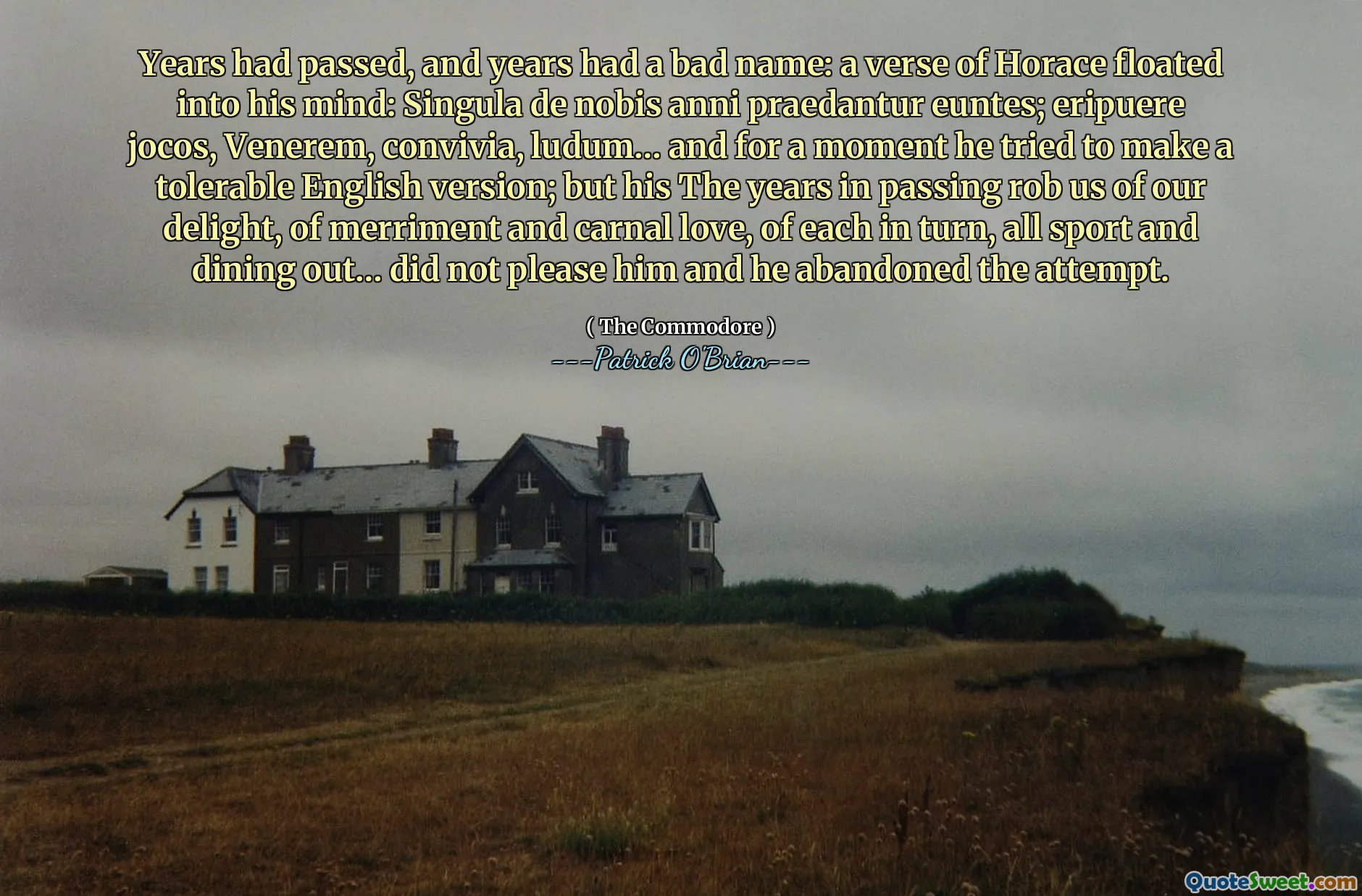
Years had passed, and years had a bad name: a verse of Horace floated into his mind: Singula de nobis anni praedantur euntes; eripuere jocos, Venerem, convivia, ludum… and for a moment he tried to make a tolerable English version; but his The years in passing rob us of our delight, of merriment and carnal love, of each in turn, all sport and dining out… did not please him and he abandoned the attempt.
As time progressed, the protagonist reflected on how the years had negatively affected life, causing a loss of joy and pleasure. He recalled a line from Horace that speaks of how each passing year takes away happiness, love, and leisure. This contemplation evoked a sense of melancholy, as he wrestled with the idea of translating these feelings into English verse.
However, despite his efforts to articulate this sentiment through translation, his attempt fell short. The words he crafted did not resonate with him, leading him to abandon the task altogether. This illustrates his struggle to capture the essence of time’s impact on human experience, revealing a deeper understanding of how it diminishes life's pleasures.











